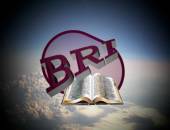READ THE BIBLE ONLINE
Rightly Dividing
the Word of Truth

BEREAN RESEARCH INSTITUTE
DOWNLOAD
FREE SEARCH SOFTWARE
God's Word
the King James Bible
Bible Studies for the Church and for Christian Ministries - BIBLE STUDY ON TOUGH ISSUES
|
|
Is the UPCI Gospel True - Water Baptized and Speak in Tongues?
Doctrine Article - D.0009
SHARE THIS ARTICLE WITH YOUR FRIENDS and FOLLOW
1. The United Pentecostal Church International (UPCI) adds to the simplicity of the Gospel of Salvation that is taught by Jesus Christ - and that is in Jesus Christ (II Cor 11:2-4) - by teaching that, to be born again, a person must do certain physical acts, namely:
2. Note that Eph 2:8,9 refutes this doctrine of 'works' salvation. (There is nothing that a person can 'do' physically to be saved. One must only 'do' non-physical things - i.e. repent from sin and surrender the heart to God. Salvation pertains to the state of the heart; not to that of the body. That is one reason why we cannot be saved by our works.)
3. Therefore, these doctrines taught by UPCI can become an offence to those who might otherwise be interested in Salvation, but who are offended by the "additional requirements" - namely water baptism and tongues-speaking - (Matt 18:6; Mark 9:42; I Cor 10:32), which the UPCI consider to be essential and integral parts of Salvation and not mere "additions" to it at all.
4. It is important that we don't change the word of God (Deut 4:2; Prov 30:6; Rev 22:18, Acts 15:5), that we don't receive another spirit (I John 4:1; II Cor 11:4), and that we don't offend others away from the truth (in this case by adding extra requirements to the true gospel.) (Matt 18:6)
5. One of the passages that the UPCI often uses to support its teaching that water baptism is necessary for salvation is John chapter 3. So, let's examine whether the UPCI interpretation of this passage is valid.
6. John 3: 3-7 3 Jesus answered and said unto him, Verily, verily, I say unto thee, Except a man be born again, he cannot see the kingdom of God.
7. Jesus coined the phrase "born again" and introduced it here for the first time in scripture. The phrase clearly refers to a second birth.
8. Nicodemus misunderstood the term and asked for clarification, thinking that Jesus was speaking of being born twice physically - both times from the mother's womb.
9. Jesus was talking about being born twice - but only once physically and once spiritually. He acknowledged Nicodemus' understanding of being born:
10. To repeat (and thereby to underscore his explanation), Jesus said, "That which is born of the flesh is flesh" referring to the first birth, "and that which is born of the Spirit is spirit", referring to the second birth.
11. That was a very straightforward answer - first birth (water/flesh) and second birth (Spirit/spirit), which Jesus himself suggested by saying, "marvel not...."
12. Perhaps a chart would help to see this:
13. Another way of stating it would be, as follows:
14. A baby in the womb is in amniotic fluid, ie. "water". The use of the word 'water' as a descriptor of a physical birth continues today, such as in the phrase "her water broke" when describing a labour/delivery.
15. Another point to understand is that the phrase "Born of water" cannot be a reference to water baptism, because a person is not "born" in any sense when he is water baptized. When he is water baptized it does not make him born for the first time, and it does not make him born for the second time ("born again") either - neither by UPCI doctrine (which requires a further step for one to be born again), nor by scripturally sound doctrine (which doesn't make the act of water baptism a part of the Salvation process at all.)
16. "Born of water" can only refer to a physical birth - the first birth - just like Jesus said - a birth that produces flesh (or a live body).
17. "Born of the Spirit" refers to a spiritual birth - a re-birth, or second birth - hence "Born again" - just like Jesus said - a birth that produces spirit (or a live spirit)
18. Jesus thoroughly answered Nicodemus' question about being "born again". He defined the second birth after providing context by first defining the first birth.
19. If it is possible that any reader would still disagree with this reasoning and conclusion, then we would appreciate knowing his/her:
| ||||||||||||||||||||||||||||||||||||||||
|
Legal Disclaimer: Terms and Conditions
Salvation | Bible Versions | Sound Doctrine | Endtime | Other Issues | Book Reviews
Home | What We Believe | Contact Us | Audios | Videos Copyright 2006-2017 All Rights Reserved: Mike Wright - Berean Research Institute web design by Centurion Digital: websites@centuriondigital.com
| ||||||||||||||||||||||||||||||||||||||||
| |||
The "Berean Research Institute" is a scripture-based, family-oriented area of cyber-space wherein men, women and children can research beliefs and doctrines that impact their assembly, ministry and/or personal lives. We encourage all to fear God and to keep his commandments by searching the scriptures daily and by being doers of the word. Many people today claim to be Christians, disciples of Jesus, but fail to continue in his word as commanded in John 8:31, and therefore are deceiving even themselves. (James1:22) The result of such deception will be exclusion from the Kingdom of God (Matt 7:21-23 and Matt 25:8-12). Not everyone ... shall enter the kingdom of heaven; but he that doeth the will of my Father which is in heaven. (Matt 7:21) If you consider yourself to be a Pentecostal, Baptist, Catholic, JW, Adventist - even a life-long one - and are convinced that you are on your way to heaven, we encourage you to consider some of the biblical doctrines that we examine in these articles and videos - and be SURE that you are on your way to heaven. That is our ultimate goal for you - that every one of you obtains eternal life!!
|
|||





